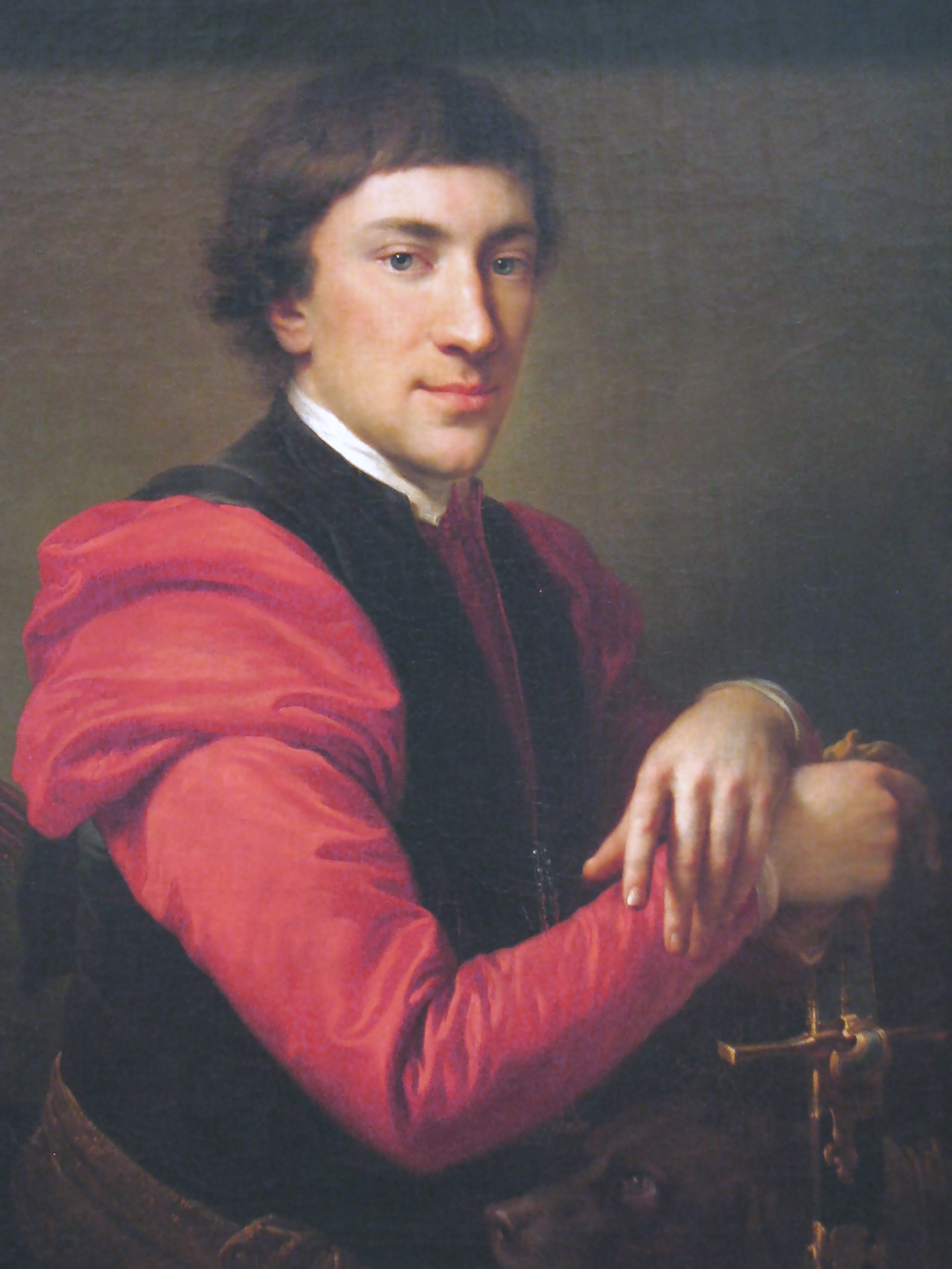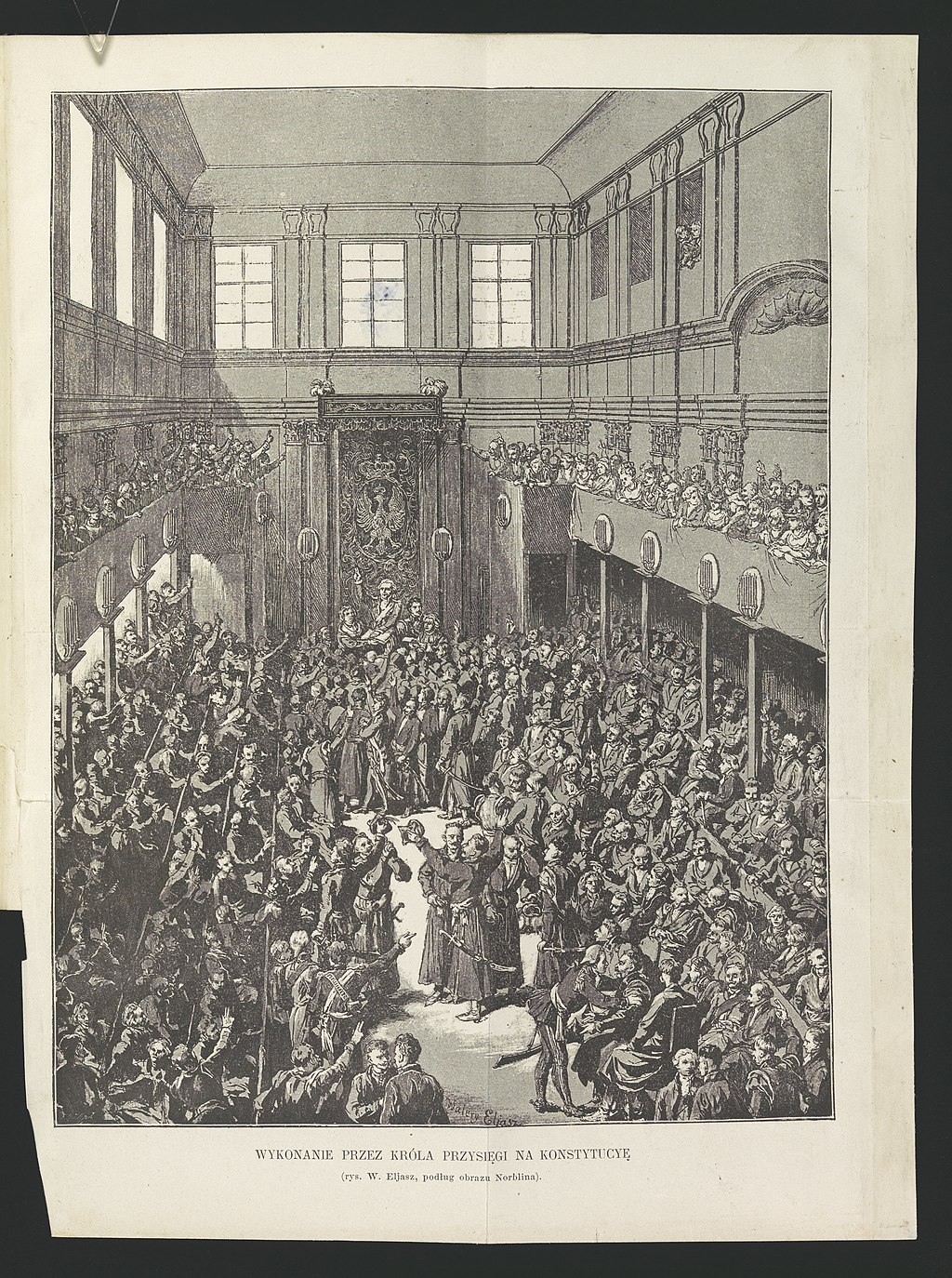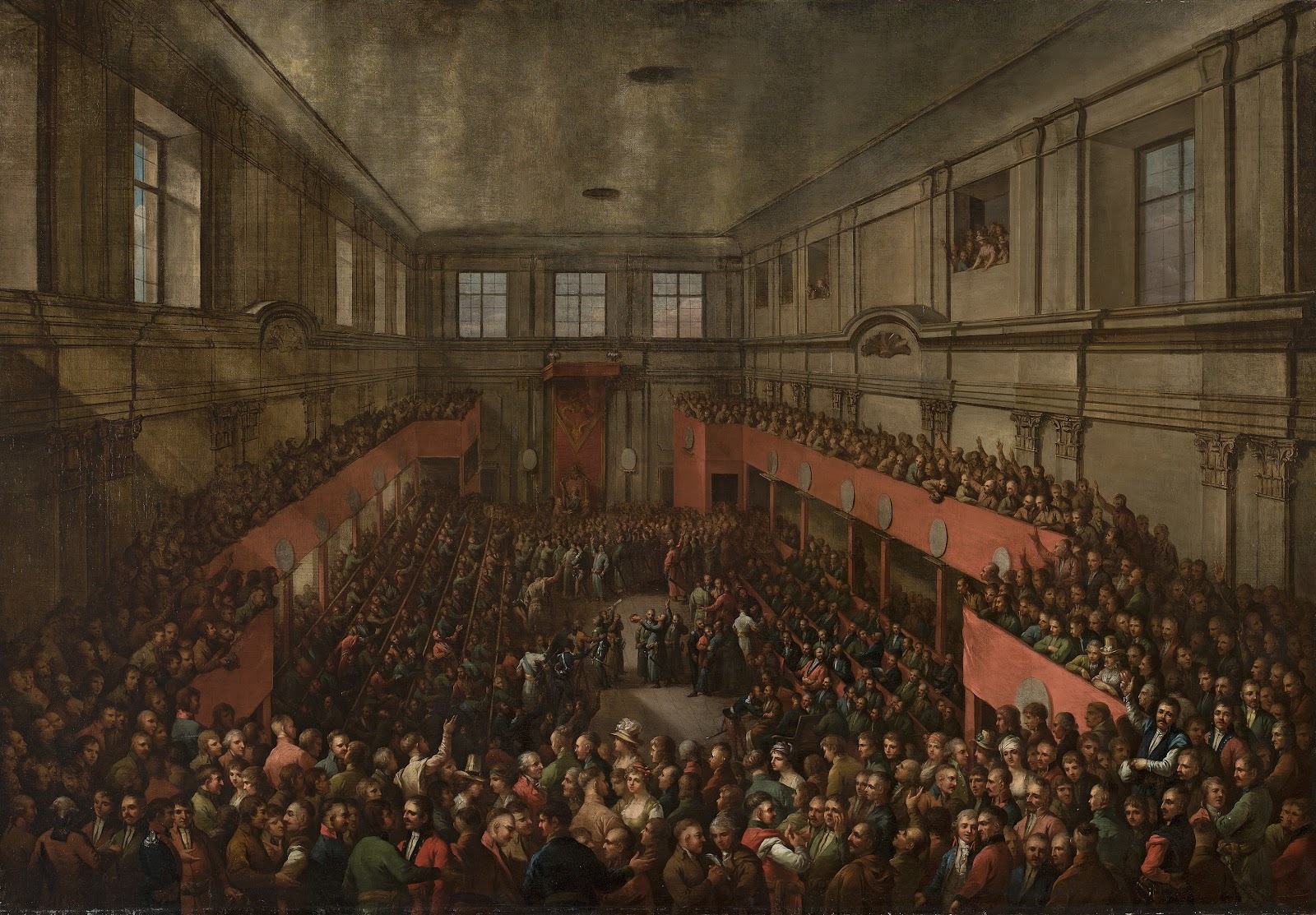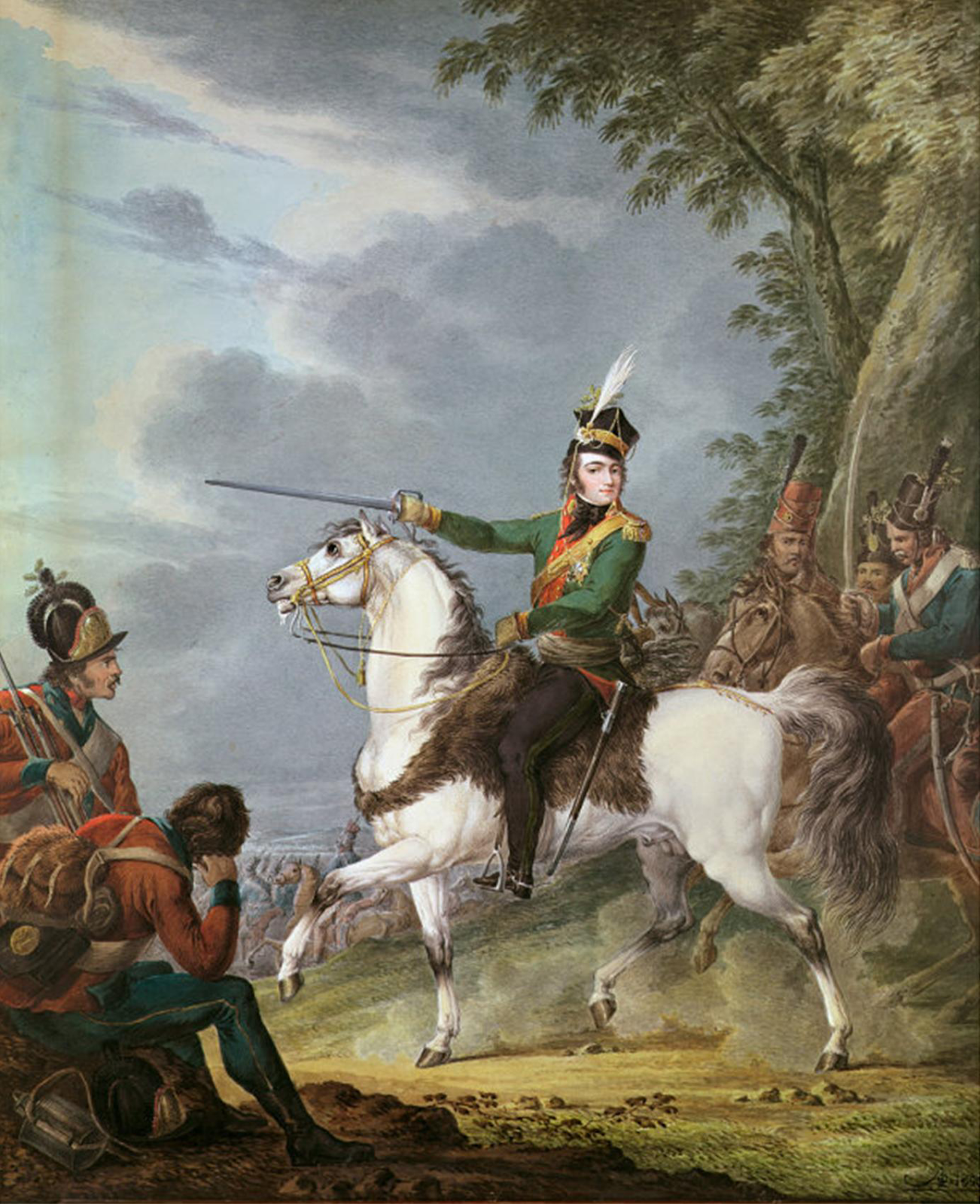Salvete Omnes,
some Polish history
in Poland the third of May is celebrated as the official state holiday - the May Constitution Day - established to commemorate the final of the Polish constitutions passed by the Sejm (the Polish Legislature) not quite in presence of all parliamentarians present in Warsaw on May 3, 1791 AD. It was the first modern constitution in Polish history and actually also the first one in the European history too, being only second to the American constitution.
The passing of that new constitution for the Polish-Lithuanian Commonwealth's Sejm was opposed by many Commonwealth magnates and nobles. The new constitutional framework for the Polish Republic was not welcomed by Russian Empire, Prussian Kingdom and Austrian Empire, those three powers that in 1772AD already took some parts of the Polish realm (known the the First Partition of Poland).
Empress Catherine II, the ruthless enlightened ruler of the Russian Empire, had the rebellion or confederacy (of some of the Polish-Lithuanian magnates, like Franciszek K. Branicki in the painting below, and noblemen) organized in the winter of the following year ( formally declared in April 1792), and then these Commonwealth confederates commonly and jointly known as the Targowica Confederation called for the Russian intervention.
And thus in the late spring of 1792 the Russian invasion commenced and a war started known nowadays as the Polish-Russsian war of 1792.
I would say this lawful and needful act of Polish Sejm ( Parliament) in May 1791 might have been the 'final straw that broke the camel's back,' i.e., it led to the Russian invasion, a defensive war, cowardly betrayal of the undefeated Polish Crown army in the field by king Stanislaw August and the so called reformers, and in consequence eventually the 2rd partition of the Commonwealth, then the Kosciuszko Insurrection of 1794 and the final Third Partition of Poland of 1795.
 |
| the very young commander of the Crown Army, Jozef A. Poniatowski |
 |
| Tadeusz Kosciuszko, commander of one of the divisions and a veteran of the American Revolution |
 |
| Pawel Grawbowski, commander of the 3rd infantry Regiment of the Duchy army |
We can only guess and wander about the alternative history here, namely what could have happened if Polish-Lithuanian Commonwealth politicians and patriots stayed put for a few more years?
What if the Great Sejm of 1788-92 ended without any new constitution and with no substantial reforms and thus the weak Polish state, with 900 thousand strong Jewish minority, continued as the Russian protectorate until the coming of Napoleon and the Napoleonic war?
One could also speculate, not without a reason, that the Prussians were behind all of this newly found courage suddenly displayed by Polish weak king and his advisors in 1789-91, as the Prussians themselves were in fact the ones who did benefit the most from the war between Polish state and Russian Empire, and the Prussians ended taking new Polish provinces, and in 1794-5 joined Russia in fighting and then ending the Commonwealth.
Valete











No comments:
Post a Comment